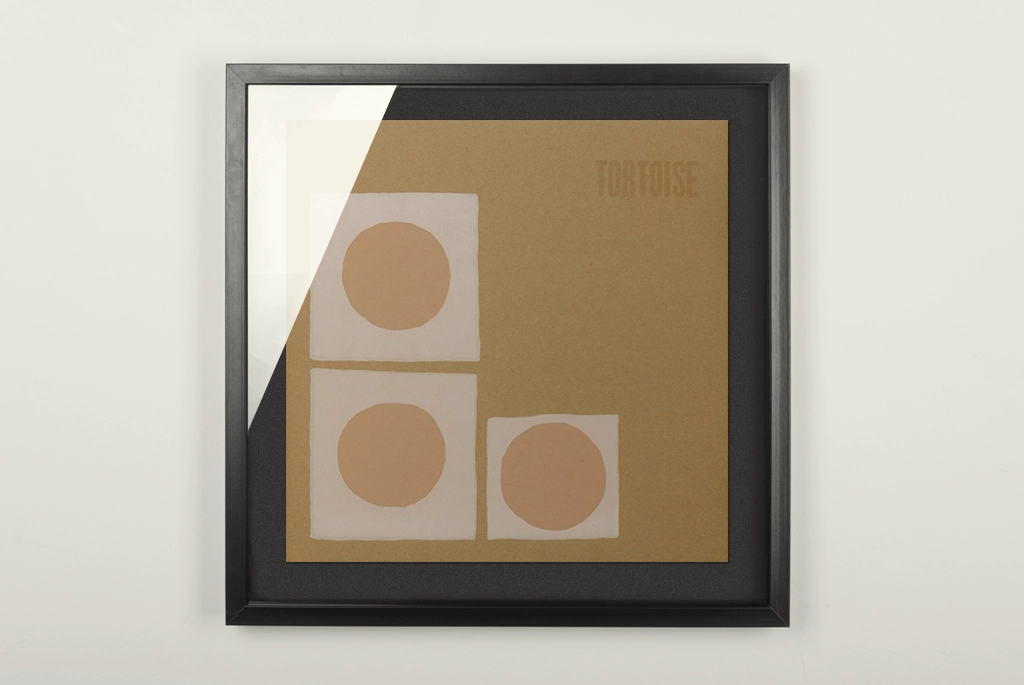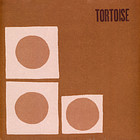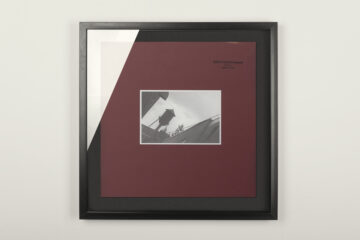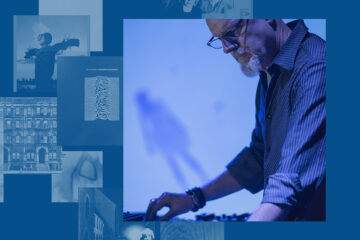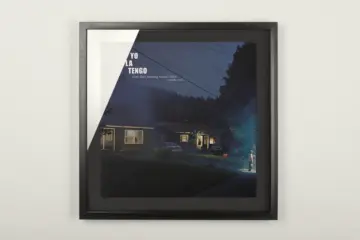There’s a rumble in the undergrowth. A dull thump from a bass amp, interspersed with feedback and slapping, accompanied by quiet synth sounds suggest that we’re dealing with music that integrates various noises alongside it. »Magnet Pulls Through«, the first track on Tortoise’s self-titled debut album from 1994, seems to find its way at first, before repetitive, stoic bass and drum patterns emerge, punctuated by eruptive surges. No vocals, presumably no guitar.
Over the course of 50 minutes, Chicago quintet Tortoise create a world made up almost entirely of drums and bass. Thinking of club music, though, would be misleading. The group, which at the time consisted of bassists Bundy K. Brown and Douglas McCombs and drummers Dan Bitney, John Herndon and John McEntire, was founded in the late eighties by Herndon and McCombs and brought together musicians from bands such as Eleventh Dream Day (McCombs) and Bastro or Gastr del Sol (Brown, McEntire).
Less is more
With their rhythm section approach, Tortoise made a radically reduced contribution to what was then called »post-rock« in order to expand guitar music. Tortoise did this mainly by leaving things out. With them, rock often dissolves into structures of dub and minimal music, supplemented by jazz approaches, which in Chicago often go hand in hand with repetition. Tortoise take dub to the extreme on tracks like »Onions Wrapped in Rubber«, where echoing drum beats open up a largely empty space with pulsating noises and rustling frequencies in the background, which were hardly used in pop at the time. In general, there are very few guitar sounds for a band that could be considered rock, even in a distant way.
Tortoise made a radically reduced contribution to what was then called »post-rock« in order to expand guitar music. They did this mainly by leaving things out.
The highlight is the eight and a half minute long »Spiderwebbed«. Woody, crunching bass patterns intertwine with an initially stoic drum set, which is later set into circular motion by polyrhythmic percussion. The whole thing is a masterpiece of minimalist instrumental rock in which the static monumentalism of bands like Can is relaxed by a wonderfully fluid groove.
»Tortoise« is not an entirely homogeneous record. There is a familiar reggae element in »Night Air«, with the sound of a melodica, and when, towards the end of the record, »Cornpone Brunch« uses a concise vibraphone melody to drive a lively beat, the album gives the first indication of where Tortoise would be heading on »TNT« in 1998.
Oddly appealing brittleness
To this day, although there have been numerous projects from Chicago that have continued the tradition in their own way, this music has retained its strangely appealing brittleness, still standing as a self-confidently laconic statement about the future of rock after rockism, like a breeze block dropped from a height, beautifully charming. A Chicago colleague like bassist Joshua Abrams may be even more extreme in his reduction of music to trance-like rituals, but this collection on »Tortoise« has something fresh about it, helping to clear the head precisely because it has no clear label.
After all, the term »post-rock« is a loose one, and bands as diverse as Bark Psychosis and Disco Inferno have been lumped in with Tortoise. And the media’s celebration of the somewhat academic term post-rock may have been a little excessive at the time. It is only of limited help in understanding exactly what Tortoise were doing.
Two years later, on their second album »Millions Now Living Will Never Die«, Tortoise were to make their contribution to the krautrock revival, especially with the 20-minute motoric epic »Djed«, and celebrate their big breakthrough. Here, on their debut, you can still hear them working their way through the root system.

